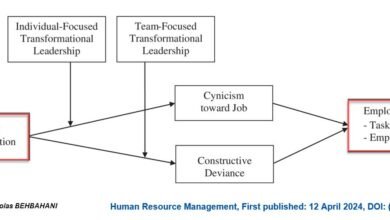
By | Ganesh Chella | Co-founder and Managing Director – CFI
Ever so often, we hear the story of a very successful leader’s career suddenly getting derailed.
He or she delivered great results, was celebrated, often even praised in high places.
Everything looked good until it suddenly begins to look quite bad.
For every such story that might be reported in the public domain, there are hundreds that go unmentioned.
Stories of leaders who focused so much on ends and so little on the means until it is too late. “Means” can mean many things but I am restricting myself to styles and behaviours and not treading on matters of ethics and morals.
Why are leaders who are intrinsically mature and balanced sometimes so blind to this reality?
There are several contributing factors to this condition but in this article, I want to shine the spotlight on one particular factor – the role of the Organisation’s culture and what it places emphasis on.
Organisational messaging is loud and clear about results, performance, outcomes, goals and so on. On the other hand, Organisational messaging about behavioural means has traditionally been buried in the fine print.
It was expected that individuals would make themselves familiar with and competent in balancing ends with the means to achieve results even if such expectations were buried in the fine print and easy to miss.
We don’t start our review meetings (of an operational or strategic nature) talking about how we need to get along with others, how we need to treat others, the importance of respect, how we need to manage relationships, how we need to be inclusive and so on. These are taken as read – even if in fine print. The focus is on results and the sub-text is, “just get it done”.
Another aspect of organizational culture is the all-pervading fear about “vulnerability”.
The culture leads many to end up somehow subscribing to what Italian politician and writer Niccolò Machiavelli said in his famous text, The Prince.
“A question arises: whether it be better to be loved than feared or feared than loved? It may be answered that one should wish to be both, but, because it is difficult to unite them in one person, it is much safer to be feared than loved, when, of the two, either must be dispensed with.”
In fact, the greatest fear among many leaders who are training to become coaching oriented is just this – that their teams will see them as too soft and therefore become less effective in getting things done.
It is only when the collateral damage is too high that the fine print is specifically read out to them. And often times it might be too late. Or, even worse, one is read out the fine print when he or she is passed over for a promotion or a big break and that can be very disheartening.
If we are fortunate to have good managers and mentors early in our life, chances are that they would drill it into our heads that we should read and pay attention to the fine print at all times.
The good news is that all this is beginning to change. In a world where everything is open and transparent and everyone is up for scrutiny and every succeeding generation of employees are experiencing far greater power than the so called powerful, it is my view that means will matter more than ever before. As employees vote with their feet, voice openly, where views and opinions can become movements and Boards are being asked to pay greater attention to means, it is my view that the fine print will be the heart of the matter.
And as we look around, there are enough shining examples of organizations moving in this direction.
Republished with permission and originally published at Ganesh Chella’s Linkedin






